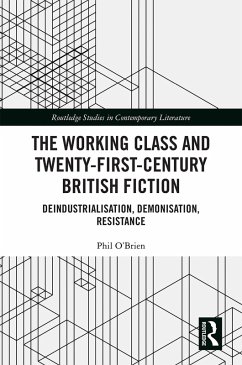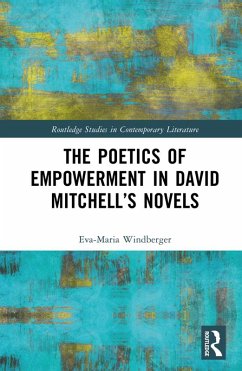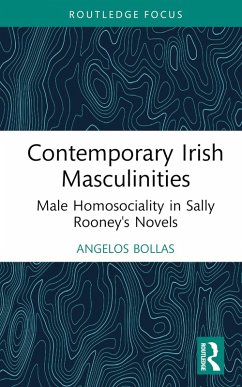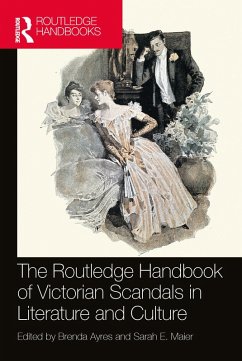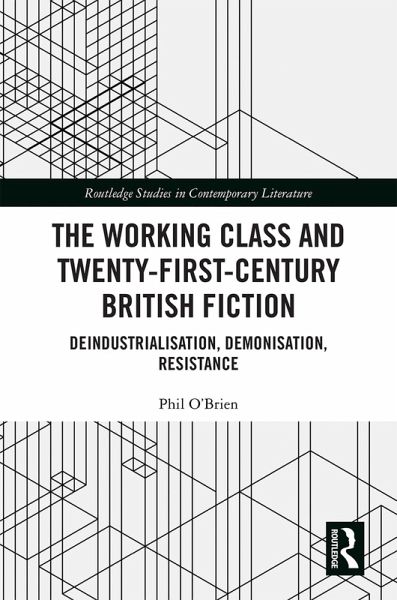
The Working Class and Twenty-First-Century British Fiction (eBook, PDF)
Deindustrialisation, Demonisation, Resistance
Versandkostenfrei!
Sofort per Download lieferbar
42,95 €
inkl. MwSt.
Weitere Ausgaben:

PAYBACK Punkte
21 °P sammeln!
The Working Class and Twenty-First-Century British Fiction looks at how the twenty-first-century British novel has explored contemporary working-class life. Studying the works of David Peace, Gordon Burn, Anthony Cartwright, Ross Raisin, Jenni Fagan, and Sunjeev Sahota, the book shows how they have mapped the shift from deindustrialisation through to stigmatization of individuals and communities who have experienced profound levels of destabilization and unemployment. O'Brien argues that these novels offer ways of understanding fundamental aspects of contemporary capitalism for the working cla...
The Working Class and Twenty-First-Century British Fiction looks at how the twenty-first-century British novel has explored contemporary working-class life. Studying the works of David Peace, Gordon Burn, Anthony Cartwright, Ross Raisin, Jenni Fagan, and Sunjeev Sahota, the book shows how they have mapped the shift from deindustrialisation through to stigmatization of individuals and communities who have experienced profound levels of destabilization and unemployment. O'Brien argues that these novels offer ways of understanding fundamental aspects of contemporary capitalism for the working class in modern Britain, including, class struggle, inequality, trauma, social abjection, racism, and stigmatization, exclusively looking at British working-class literature of the twenty-first century.
Dieser Download kann aus rechtlichen Gründen nur mit Rechnungsadresse in A, B, BG, CY, CZ, D, DK, EW, E, FIN, F, GR, HR, H, IRL, I, LT, L, LR, M, NL, PL, P, R, S, SLO, SK ausgeliefert werden.




